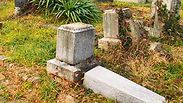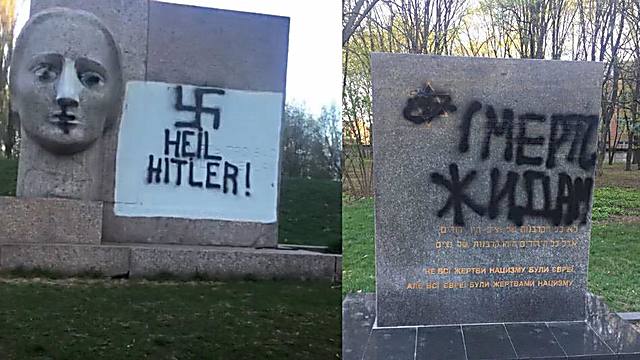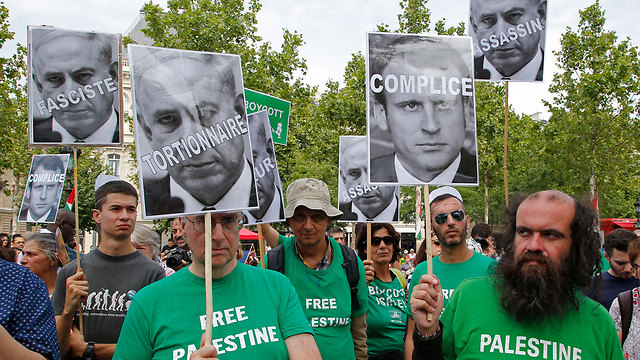

Jewish leader: Over 40 percent of young Germans don’t know what Auschwitz is
Jewish community directors from around the world, taking part in a World Jewish Congress meeting in Israel, say anti-Semitism is on the rise in many parts of Europe not because of government policies but because of increasing public sentiments; ‘We have an undemocratic community which keeps growing and voting for extremists,’ says French Jewish leader.
According to the Jewish leaders, anti-Semitism is on the rise in many parts of Europe not because of the governments’ policy, but because of feelings spreading among different parts of the public.
Robert Ejnes, the executive director of CRIF, an umbrella organization of French Jewish organizations, mentioned the French government’s strong support of the Jewish community.
“Is France an anti-Semitic country? The answer is no,” he said. “Is there anti-Semitism in France? The answer is yes. President (Emmanuel) Macron has declared that anti-Zionism is a new form of anti-Semitism. Former Presidents Francois Hollande and Nicolas Sarkozy made strong statements on the matter too.
“We have the strongest legal system to fight anti-Semitism and Holocaust denial,” Ejnes added. “Are the laws always implemented efficiently? That’s a good question. In the past 20 years, 12 people have been murdered in France for being Jews. Anti-Semitic attacks make up 50 percent of hate crimes in the country.
“We have an undemocratic community which keeps growing and voting for extremists. We aren’t attacked merely because we are Jews, but also because of the values we represent. We are very concerned about the forces fighting democracy.”
Daniel Botmann, managing director of the Central Council of Jews in Germany, pointed at the rise of the far right and Boycott, Divestment, Sanctions (BDS) movement as the main source of anti-Semitism. That fact, he said, along with the public’s surprising ignorance on Holocaust issues, has prompted the government to take significant steps to curb anti-Semitism.
“More than 40 percent of young Germans don’t know what Auschwitz is. That’s a thought-provoking situation. Good relation with the government are not enough. We have to work from the bottom, in schools, with young people, by holding a dialogue between Jews and non-Jews. We need stable relations with the civil society, because anti-Semitism is not just a Jewish problem. Anti-Semitism is anti-democratic and threatens the entire society, not just Jews.”
Péter Kunos the executive director of the Federation of Jewish Communities in Hungary, noted that recent surveys showed “20 percent of the population in Hungary—in other words, 2 million people—shares strong anti-Semitic sentiments, but the government is making efforts to guarantee that the country’s Jewish population will be able to live securely.”
The comments were made by members of a WJC delegation, which includes some 60 Jewish community directors from 50 countries around the world, as part of the organization’s annual National Community Directors' Forum.
This is the fifth time the forum convenes at the initiative of WJC CEO Robert Singer, and the first time it convenes in Israel, in honor of the state’s 70th anniversary.
The delegation members are the most senior professional representatives of Jewish communities around the world and they consider this conference the best stage for exchanging knowledge and experience on the representation of their communities in international forums.

















